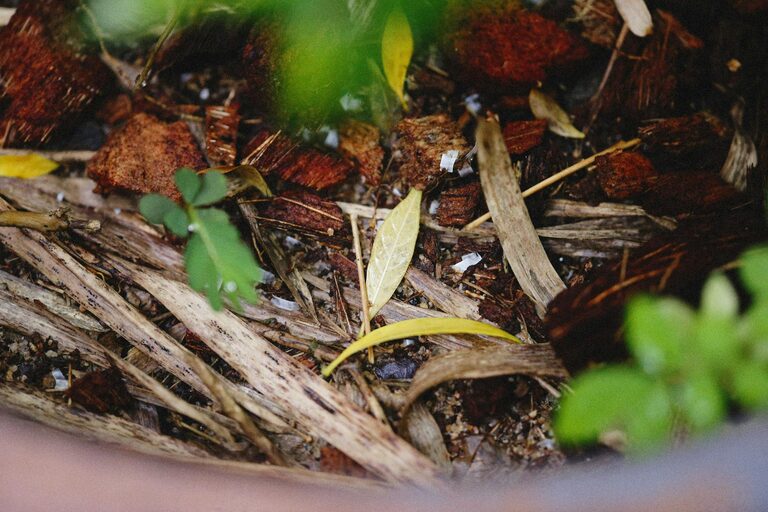Composting at home is a wonderful way to reduce waste, enrich your garden soil, and contribute positively to the environment. If you’re new to composting, the process might seem a bit confusing at first. Don’t worry — with a few simple tips and a little patience, you can start creating your own compost and enjoy the benefits it offers.
What is Composting?
Composting is the natural process of recycling organic materials, like food scraps and yard waste, into nutrient-rich soil amendment. Instead of throwing away items like vegetable peels, coffee grounds, or leaves, composting helps break them down into humus, improving soil fertility and structure.
Why Compost at Home?
– Reduces kitchen and garden waste sent to landfills.
– Cuts down on greenhouse gas emissions from organic waste.
– Provides free, high-quality fertilizer for your plants.
– Encourages sustainable gardening practices.
– Saves money on buying commercial soil enhancers.
Getting Started: Basic Composting Tips for Beginners
1. Choose the Right Compost Bin or Pile
You can compost in many ways, depending on your space and preference:
– Compost Bin: Enclosed containers are neat and keep pests out. They come in various sizes and designs.
– Compost Pile: Simply a heap in your backyard works if you have space. Turning it regularly speeds up decomposition.
– Tumbler: A rotating container makes mixing easier and speeds up the process.
Make sure your compost area is in a well-drained, shaded or partially shaded spot in your yard.
2. Know What to Compost
Compost materials fall into two categories:
– “Greens” (Nitrogen-rich): Fruit and vegetable scraps, coffee grounds, grass clippings, tea bags.
– “Browns” (Carbon-rich): Dry leaves, straw, shredded newspaper, cardboard, small branches.
Aim for a balance of roughly 3 parts browns to 1 part greens. Too many greens make the pile smelly, while too many browns slow decomposition.
3. Avoid Composting These Items
Some materials are not suitable for home composting because they attract pests, spread disease, or don’t break down well:
– Meat, fish, bones, and dairy products
– Fats, oils, and greasy foods
– Diseased plants or weeds with seeds
– Pet waste (from carnivorous animals)
– Treated wood or chemically contaminated plants
4. Prepare Your Materials
Chop or shred larger pieces like branches or big leaves to speed up decomposition. Mixing the materials well helps air circulate, which is vital for healthy composting.
5. Maintain Moisture and Aeration
– Moisture: Compost should be as damp as a wrung-out sponge. Too dry slows decomposition; too wet causes odor problems.
– Aeration: Turn or mix your compost every 1–2 weeks with a garden fork or compost aerator to introduce oxygen, which supports beneficial microbes.
6. Monitor Temperature
While not essential for small home bins, monitoring temperature helps you know if the composting microbes are active. Compost piles heat up as microbes break down material. If it cools down after a few weeks, turning the pile can help restart the process.
7. Be Patient
Composting takes time! Depending on methods and materials, it can take anywhere from a couple of months to a year to produce finished compost. Finished compost looks dark, crumbly, and earthy-smelling.
Using Your Finished Compost
Once your compost is ready, use it to:
– Enrich garden beds and flower pots
– Improve lawn soil by mixing it in before overseeding
– Mulch around trees and shrubs for moisture retention
– Help your vegetables and herbs grow stronger and healthier
Avoid using unfinished compost, as it may contain seeds or harmful pathogens.
Troubleshooting Common Composting Problems
| Problem | Cause | Solution |
|———————–|————————————-|————————————-|
| Smelly compost | Too much green material or wet | Add more browns; turn pile for air |
| Pests or rodents | Meat, dairy, or food scraps exposed | Avoid those items; secure bin lid |
| Slow decomposition | Pile too dry, too big, or compacted | Add water; turn pile; chop materials |
| Compost pile not heating | Not enough nitrogen or pile too small | Add greens; increase pile size |
Extra Tips for Successful Composting
– Use kitchen scraps fresh (avoid letting them rot in your kitchen).
– Collect scraps in a small container with a lid or use a compost collector near your sink.
– Add garden soil occasionally to introduce helpful microbes.
– Keep a compost journal to track what works best in your climate.
Final Thoughts
Home composting is both rewarding and environmentally responsible. Starting small and following these beginner tips will set you on the right path to turning everyday waste into a valuable resource for your plants. Over time, you’ll find the process easier and maybe even enjoyable!
Happy composting!

